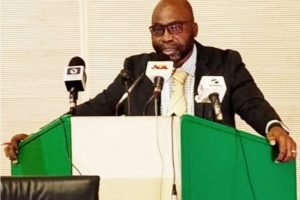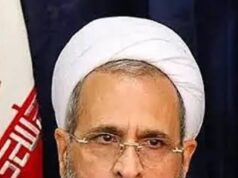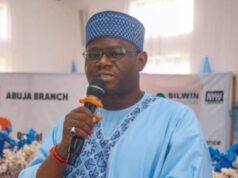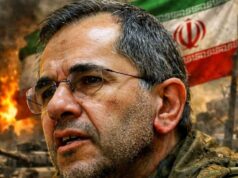
Until January 25 and 26, 2022, when some journalists went through enlightening two-day training, put together by the Independent Corrupt Practices and other related Offences Commission (ICPC), I, in particular, had never known much about its operational modalities other than that it’s just another agency doing what its counterparts are doing in terms of fighting against corruption.
On the other hand, I had, on the face of it, regarded the Economic and Financial Crimes Commission (EFCC) as the one doing almost all or most of the cleaning up job because of what looked like its dynamic operational methodologies, with full media backups.
The two-day training, which was organized and conducted in Keffi, Nasarawa State, by the operatives of the ICPC, opened the eyes of the participants, including yours sincerely, not only to the dept, the diversity, the multiplicity, and complicated nature of corruption, but also to the equally dynamic way the agency has been handling corruption cases.

Of course, like a state governor once said, if you want to be popular, just keep on talking to the press even if there is no need for such talks, EFCC, in this regard, has continually applied this philosophy and, it has been paying the Commission handsomely.
And of course, between the ICPC and the EFCC for example, there are some points from where they practically differ, both in perception and operational methodologies.
There’s no doubt that the two have been steadfast in their roles according to the laws that set them up, but while the EFCC chose to be more opened and vocal, the ICPC has chosen to be more “secretive” and if you like, shy, especially from the point at which investigation on suspected corrupt personality begins.

It is an open secret that EFCC often informs Nigerians via the media, the arrest of suspected corrupt personality even before the investigation commences on the case, while the ICPC hardly publicises the mere arrest.
At the training, the ICPC explained why it does not fancy the idea of publicly announcing the arrest of high profile suspects. The Commission said that it respects individual person suspected to have committed corruption offence, and that such respect derives from the legal terminology that says everyone is innocent until proved guilty by the competent court.
The main philosophy of the ICPC, in summary goes thus: “when you arrest a suspect and go to the press to put it to the public, there’s 50-50 percent chance of such suspect eventually coming out innocent of what he’s charged for; how are you going to repair his image that’s damaged through the media exposure? In other words, ICPC tries to run away from what has become known recently as ” media trials.”
It is not as if ICPC does not know the importance of the media for promoting its activities and operations, but it considers the importance of the integrity of the suspect even if such suspect is eventually convicted for the offence.
The Commission’s leadership seems focus more on recovering stolen funds and properties from the culprits to the government than the person, as much as it can. And, the leadership prefers bringing in the media only after the suspect has been convicted by the court.
In most cases and because of the operational methods of these two anti corruption agencies, many suspected corrupt personalities prefer to be investigated by the ICPC. In deed, ICPC had been able to quietly recover funds, running into billions of naira and other hard currencies, properties in their thousands from individual, corporate, legislative and government entities for the government, more than Nigerians ever know.
Of course, most newsmen, like bees, prefer to attach themselves to where the news often emanate. And so, between the EFCC and the ICPC, many reporters would cling to the EFCC, but the irony is that the end often doesn’t justify the means (the rush to make the news).
It may look insignificant, but the leadership of the two Commissions might have been playing significant roles in the way the Commissions are being run, and how people perceive them. While the EFCC has largely being managed by top officers of the Nigeria Police Force (NPF) with all the forces at their disposal within the confines of the Commission’s mandate, ICPC has mainly being managed by academia or deeply qualified law officers.
All said, the multiple, dynamic, deadly corruption that is permeating the country, from top to bottom, and at all strata of public and private places deserve both the ruthlessness of the EFCC in all forms, as well as the kid’s glove manner with which ICPC has been handling same, occasioned of course by the Act that set it up.
Part 2 of the takeaways from the training will come your way shortly.






